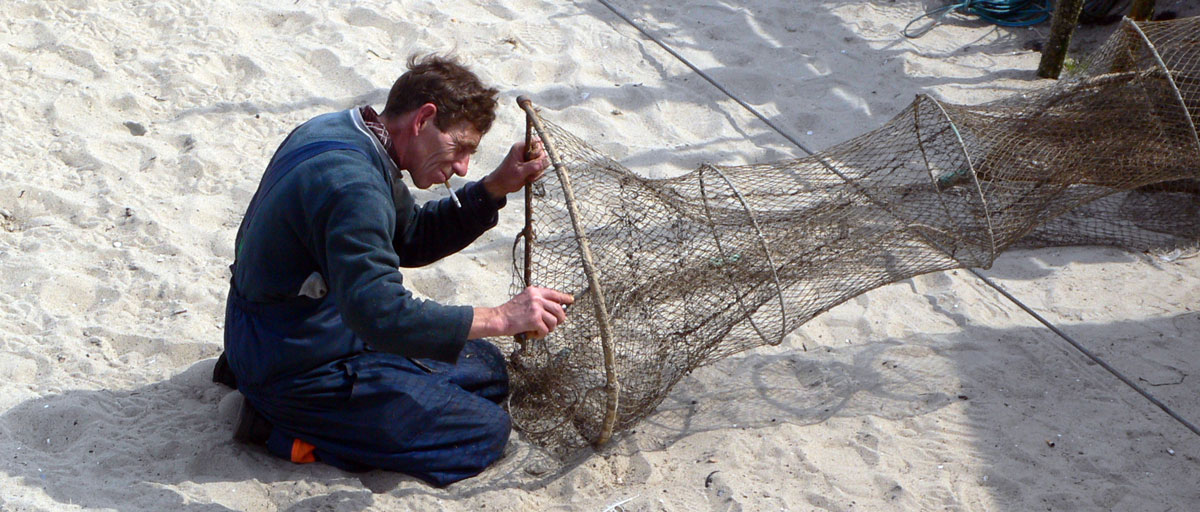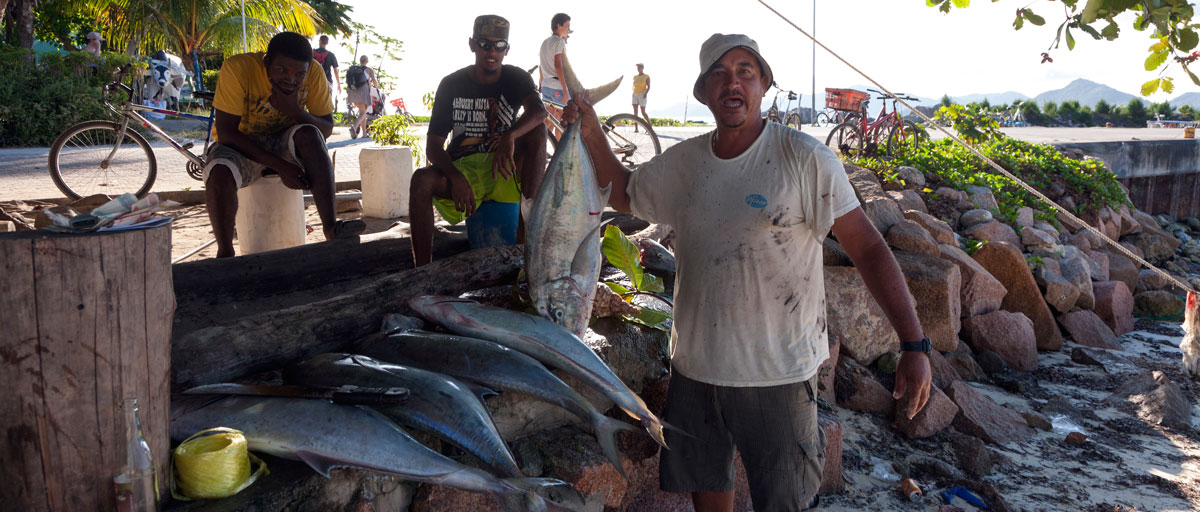MODELS
Human relationships are still missing from fisheries management models

Social relationships are rarely included in the bioeconomic models that are widely used to guide fisheries management. A new study using the Mexican Humboldt squid fishery as a case, shows a way forward. Photo: T. Frawley
Bioeconomic models guiding small-scale fisheries development programmes exclude important interactions between fishers, traders and consumers. This may increase existing inequalities
- Social relationships between fishery users can alter individual responses to climate change-induced changes to fisheries
- Predictions of a social-ecological model that includes these relationship dynamics substantially improves accuracy in predicting fishery outcomes compared to a simple bioeconomic model
- Current fishery development programs that rely on bioeconomic models may actually increase income inequality between fishers and traders
COMPLEX RELATIONSHIPS: Climate change is set to seriously impact small-scale fisheries, altering the abundance and distribution of many species that are crucial to the livelihoods of millions around the world.
How fishers can respond and adapt to these changes is often determined by a complex web of social relationships between fishers, traders and various users and consumers.
But despite this, these social relationships are rarely included in the predictive bioeconomic models that are widely used to guide fisheries management.
What are the consquences of this?
Improved accuracy to predict outcomes
In a paper published in Regional Environmental Change, a team of international researchers led by former centre researcher Laura Elsler compare the predictions of a bioeconomic fishery model with those of a social-ecological model that incorporates the dynamics of cooperative relationships between fish traders.
The study, which uses the empirical case study of the Mexican Humboldt squid fishery, shows that a social-ecological model that includes these complex relationship dynamics substantially improves accuracy in predicting fishery outcomes.
Individual action and impacts on individuals are often the primary focus of economic analyses informing the formal management of small-scale fisheries, dismissing relevant social relationships.
Laura Elsler, lead author
Interactions that are both good and bad
Mexico’s Humboldt squid fishery has had a significant and well-documented response to recent changes in environmental and climate trajectories, including changes in fishers’ prices, catch volumes and landing locations.
Social relationships play a large role in navigating this. Relationships between traders can help create economic buffers for fishers. For instance, traders might buy fish that they did not demand but be able to sell it to another trader. This higher flexibility to catch what is available can increase fisher income.
However, social relations may also negatively affect welfare outcomes. Traders can act as gatekeepers to global markets, provide fishing permits, equipment, or loans. These interactions can create dependencies and reduce fishers’ ability to negotiate competitive prices.
Cooperation amongst traders also can reduce market competition and enable them to fix fish prices to below market value, leading to lower fisher income. Thus, social relationships can be important determinants of welfare outcomes in fisheries.
Bridging the disconnect
A disconnect between reality and its model representation can even trigger adverse consequences.
The study shows that a major fishery development programme that is supported by predictions from the simple bioeconomic model and seeks to increase fishers' income through increasing domestic market demand, may actually increase income inequality between fishers and traders.
“Our findings highlight the urgent need to rethink fisheries management models in the context of small-scale fisheries and climate change to encompass social relationship dynamics,” conclude the authors.
Methodology
The analysis investigated changes in social relationships of those involved in the small-scale fishery in response to climate change, focusing in particular on the impacts of climate-driven migration of target species on trade relationships. The authors developed a suite of three dynamic models of the squid fishery.
To arrive at generalizable insights, previous knowledge from other case studies and theory were combined and contextualized within the Humboldt squid fishery.
Model assumptions were derived from a combination of literature review, co-authors’ expert knowledge, and in-depth expert interviews. Experts were identified through publications, analysis of policy narratives, and recom-mendations from interviewees, i.e., snowball sampling.
The baseline model was a bioeconomic model of a type often used in real strategic fisheries management. The environmental driver model incorporates climate change impacts (proxied by sea surface temperature anomalies) on the squid population to the bioeconomic model. This paper’s novelty is the social-ecological model, which includes social relationship dynamics in response to changes in the fishery, particularly changes in trader’s cooperation driven by squid response to climate change.
Elsler, L.G., Frawley, T.H., Britten, G.L. et al. 2021. Social relationship dynamics mediate climate impacts on income inequality: evidence from the Mexican Humboldt squid fishery. Reg Environ Change 21, 35. https://doi.org/10.1007/s10113-021-01747-5








